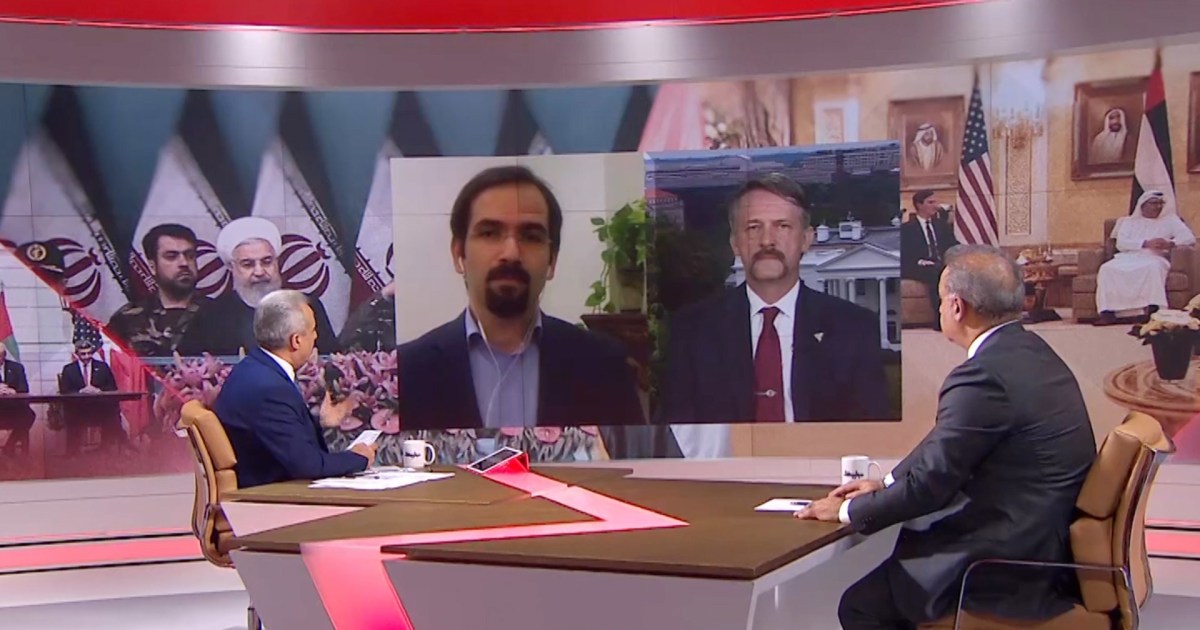According to Al-Zwairi, in statements to the "Scenarios" program, the political and economic pressures and the internal challenges facing the Iranian regime make it difficult for it to think of opening a new front that will increase the burdens that are already burdened by the US sanctions.
Al-Zwairi said that the situation has turned 180 degrees in Iran since 2015 when Tehran signed the nuclear agreement with the United States and the "5 + 1" countries, and it thought at that time that all its economic and political problems had ended, but that the situation changed with the arrival of the Donald Trump administration, and also after the problems that Its arms in Syria, Yemen and Iraq are facing it, and the inability of these arms to resolve the situation after many years of war and conflict in those countries.
Therefore, Al-Douairi suggested that the Iranian leadership and government would continue its escalating rhetoric against Washington and Israel, especially after the UAE and Bahrain signed a peace agreement with Israel, and Washington imposed unilateral sanctions on it.
Al-Duwairi said that the Iranian regime will continue to escalate its rhetoric throughout the forty days leading up to the US elections, hoping that a democratic president will come to the White House to restore the agreement with Tehran, which will benefit from the escalating speech to calm the home front, and it will also raise the concern of other countries that do not want to destabilize In the Gulf region, such as Europe, India, Pakistan, the Arab Gulf states and Turkey.
In turn, Professor of International Relations at the University of Tehran, Dr. Ahmed Yan stressed that the Iranian reaction to the Emirati peace with Bahrain will not be a rapid change in Iran's foreign policies with the Emirates or Bahrain, but rather a gradual change to take into account Iranian interests, stressing that the confrontation with Israel, America or Any country that harms Iran's sovereignty and interests is inevitable, but not in the near future.
Thomas Countryman, a former assistant secretary of state for security affairs, agreed that Tehran would not change its policies toward its neighbors who established peace with Israel quickly, but gradually.
Although Countryman ruled out a confrontation between Washington and Tehran against the backdrop of the recent escalation between them, he pointed at the same time to concern about the behavior of US President Donald Trump, who is fighting a fierce election battle and wants to win it by all possible means.
Countryman considered that Trump and the leadership in Iran lack wisdom at times, which he said raises concern that one of them may resort to the option of confrontation, in order to achieve gains at the internal level, warning at the same time that Tehran will increase the difficulties it faces if it thinks In exploiting its arms in the region against US interests.
According to Interman, if the US election ends with Trump failing and Democratic candidate Joe Biden wins, that will mark the end of this crisis.
Although Ahmed Yan stressed that Tehran gives priority to its national and security interests, not economic ones, he stressed that it will not cut its commercial relations once with the UAE, and that it will do so gradually, noting at the same time that the military base announced by Tehran today is in the Strait of Hormuz. Opposite the coasts of the UAE, it is a clear message that Tehran is ready to defend its sovereignty and security, and that it considers that the UAE has chosen to stand by Iran's first enemy, in reference to the peace that Abu Dhabi signed with Tel Aviv.

